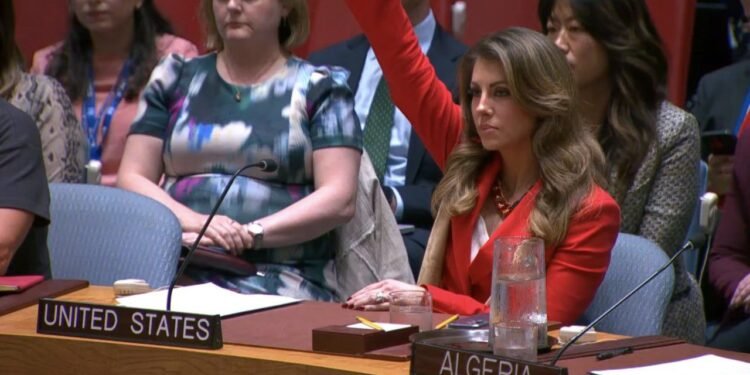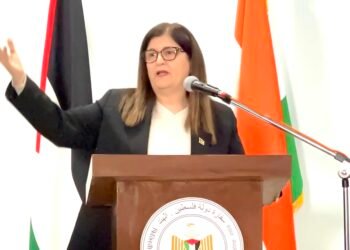UNITED NATIONS: The United States on Thursday vetoed a draft United Nations Security Council resolution calling for an immediate, unconditional, and permanent ceasefire in Gaza, along with the lifting of all restrictions on humanitarian aid deliveries to the besieged enclave.
The resolution, drafted by the 10 elected members of the 15-nation council, also urged the release of all hostages held by Hamas and other groups “immediately, unconditionally, and with dignity.” It won overwhelming backing, with 14 members voting in favor, but Washington’s veto blocked its adoption. This marked the sixth U.S. veto related to the nearly two-year-long Gaza war.
“Famine has been confirmed in Gaza, not projected, not declared, confirmed,” Denmark’s U.N. Ambassador Christina Markus Lassen told the chamber before the vote. “Israel has intensified its military operations in Gaza City, worsening the suffering of civilians. It is this catastrophic humanitarian collapse that has compelled us to act today.”
Last month, an international hunger monitoring body formally declared famine in Gaza City and neighboring areas, warning that it is likely to spread further.
The U.S., Israel’s closest ally, has consistently shielded it from censure at the U.N. However, in a rare step last week, Washington supported a Security Council statement condemning strikes on Qatar. The carefully worded statement avoided directly naming Israel, but the U.S. move still raised eyebrows.
The shift was short-lived. Thursday’s veto signaled Washington’s continued commitment to defending Israel diplomatically, despite global concern over the worsening humanitarian crisis.
“Hamas is responsible for starting and prolonging this war,” U.S. diplomat Morgan Ortagus told the council. “Israel has accepted proposals to end hostilities, but Hamas refuses them. This war could end today if Hamas released the hostages and laid down its arms.”
Israel, for its part, expressed frustration at last week’s council statement on the Qatar strikes. Yet Israel’s U.N. envoy Danny Danon underscored that the U.S.-Israel partnership remains solid. “Overall, the level of cooperation with the U.S. is so high that we were comfortable moving past that disagreement,” Danon told reporters.
– WNN at UN



















